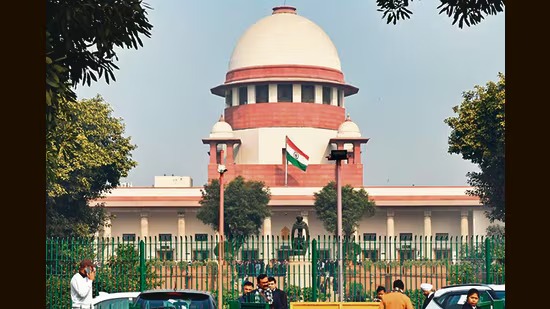
Follow WOWNEWS 24x7 on:

In a significant stride toward strengthening India’s judicial infrastructure, the central government has notified the appointment of 19 judges and additional judges to the High Courts of Telangana, Madhya Pradesh, and Gauhati. The move follows recommendations made by the Supreme Court Collegium earlier this month and reflects the Centre’s commitment to addressing judicial vacancies and enhancing court efficiency.
Appointments at a glance
- Telangana High Court welcomes four new additional judges, all advocates:
- Gouse Meera Mohiuddin
- Chalapathi Rao Suddala
- Vakiti Ramakrishna Reddy
- Gadi Praveen Kumar
- Madhya Pradesh High Court sees the largest intake with 11 appointments:
- Advocates elevated as judges: Pushpendra Yadav, Anand Singh Bahrawat, Ajay Kumar Nirankari, Jai Kumar Pillai, Himanshu Joshi
- Judicial officers appointed as judges: Ramkumar Choubey, Rajesh Kumar Gupta
- Additional judges for a two-year term: Alok Awasthi, Ratnesh Chandra Singh Bisen, Bhagwati Prasad Sharma, Pradeep Mittal
- Gauhati High Court gains four new additional judges:
- Advocates: Anjan Moni Kalita, Rajesh Mazumdar
- Judicial officers: Pranjal Das, Sanjeev Kumar Sharma
Selection process and procedural backdrop
The appointments were made in accordance with the Memorandum of Procedure (MoP) governing judicial selections. The process began with recommendations from the Chief Justices of the respective High Courts, followed by consultations with senior colleagues. These proposals were then forwarded to the Union Law Ministry, which reviewed them in light of available reports and forwarded the final list to the Chief Justice of India.
After deliberations with the two seniormost judges of the Supreme Court, the Collegium finalized its recommendations. The President of India, Droupadi Murmu, subsequently approved the appointments, which were announced by Union Law Minister Arjun Ram Meghwal via social media.
Why these appointments matter
- The appointments come at a time when several High Courts are grappling with case backlogs and judicial vacancies
- Madhya Pradesh High Court, in particular, has faced delays due to pending appointments, making this intake crucial for restoring balance
- The inclusion of both advocates and judicial officers ensures a blend of courtroom experience and administrative acumen
- These appointments are expected to improve case disposal rates and reduce pendency across the three High Courts
Political and legal context
The announcement arrives amid ongoing debates between the judiciary and the executive over appointment transparency and delays. While the Collegium system remains under scrutiny, the timely notification of these appointments signals a cooperative phase between the two branches.
- The Supreme Court Collegium had recommended these names during its July 1 meeting
- The Law Ministry’s swift action in notifying the appointments is seen as a positive gesture toward judicial independence
- Legal experts have welcomed the move, noting that it reflects responsiveness to institutional needs
Looking ahead
With these appointments, the High Courts of Telangana, Madhya Pradesh, and Gauhati are better positioned to handle their caseloads and deliver timely justice. The blend of seasoned advocates and experienced judicial officers is expected to bring fresh perspectives and reinforce the rule of law.
As the judiciary continues to evolve, such appointments will play a pivotal role in shaping its future—ensuring that justice is not only done but seen to be done.
Sources: LiveLaw, Verdictum, Nagaland Tribune, NewKerala, CNBC-TV18.



